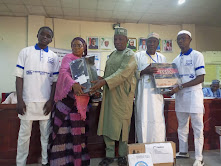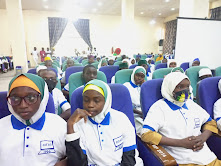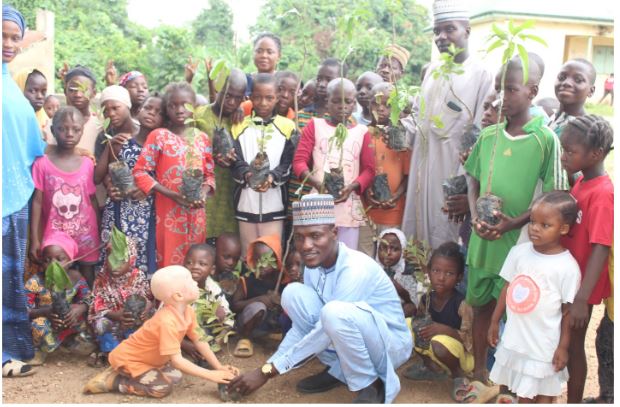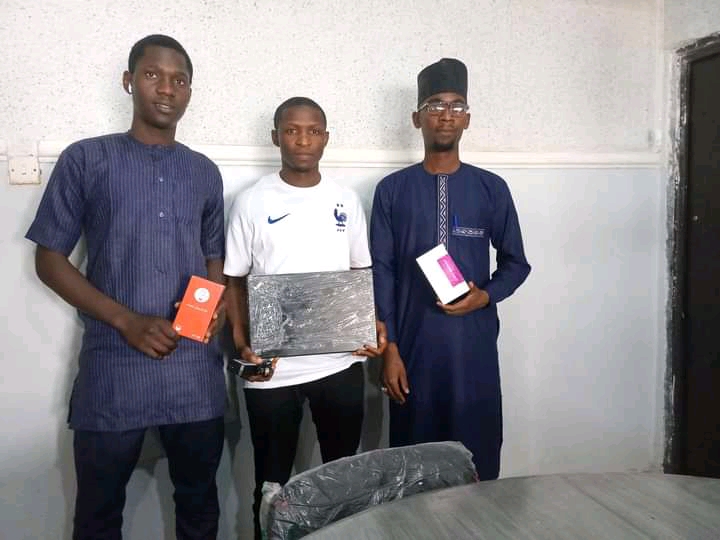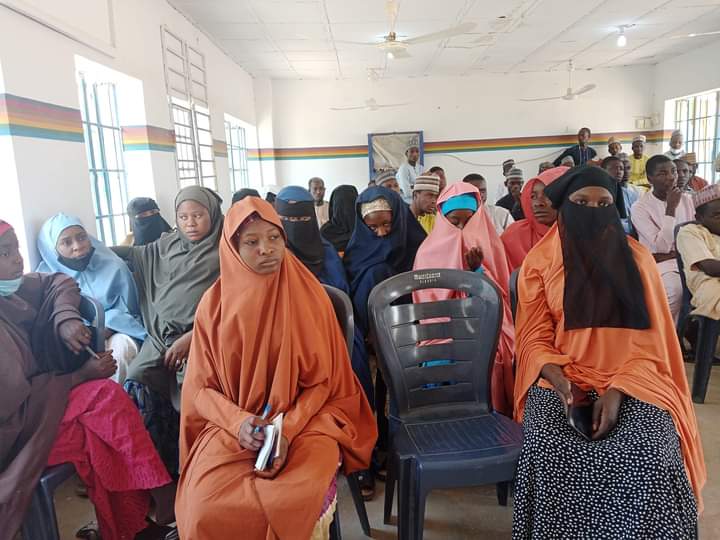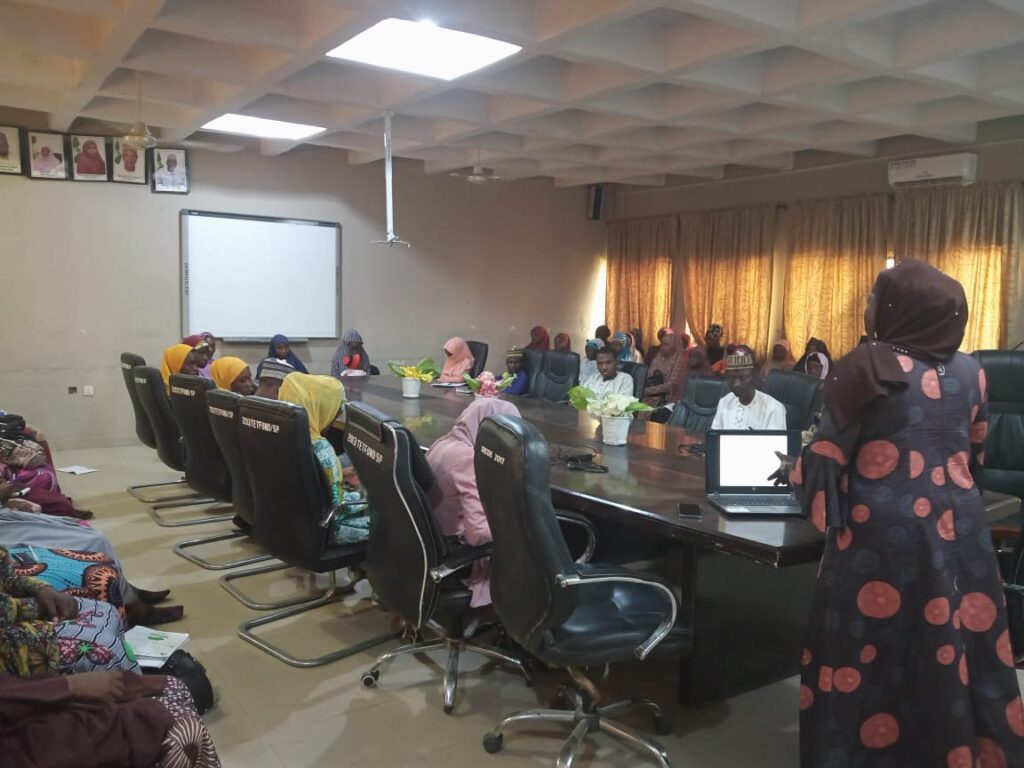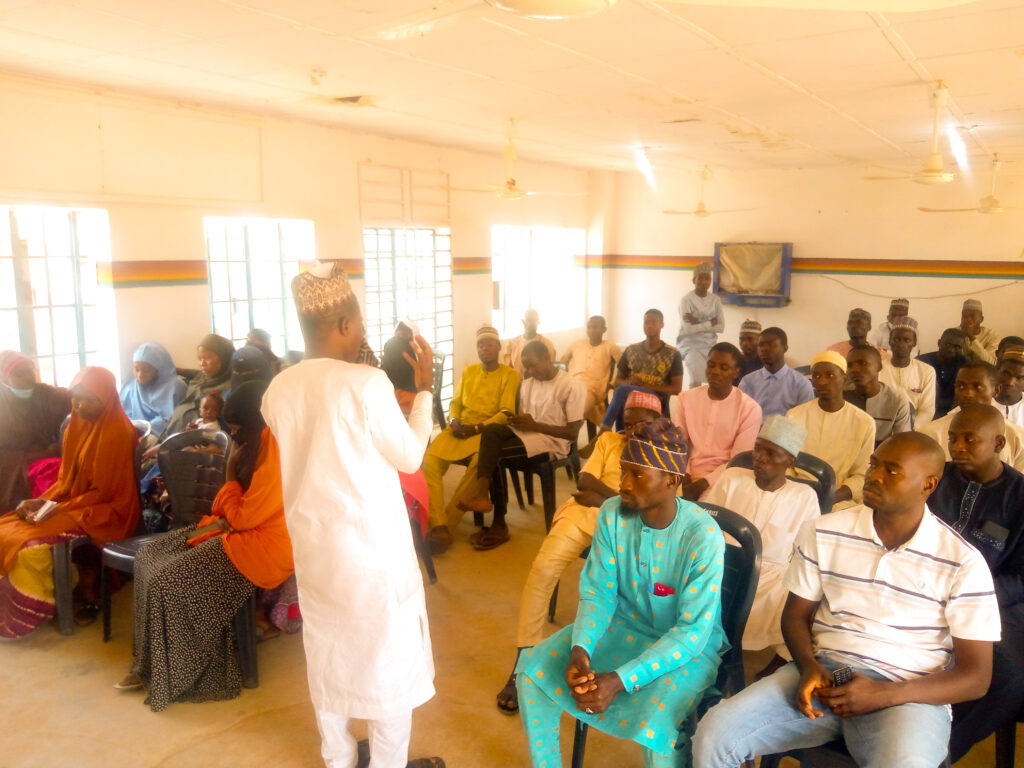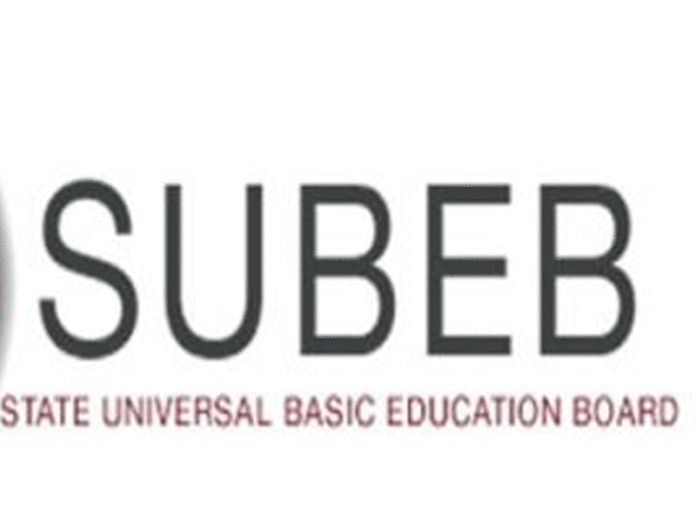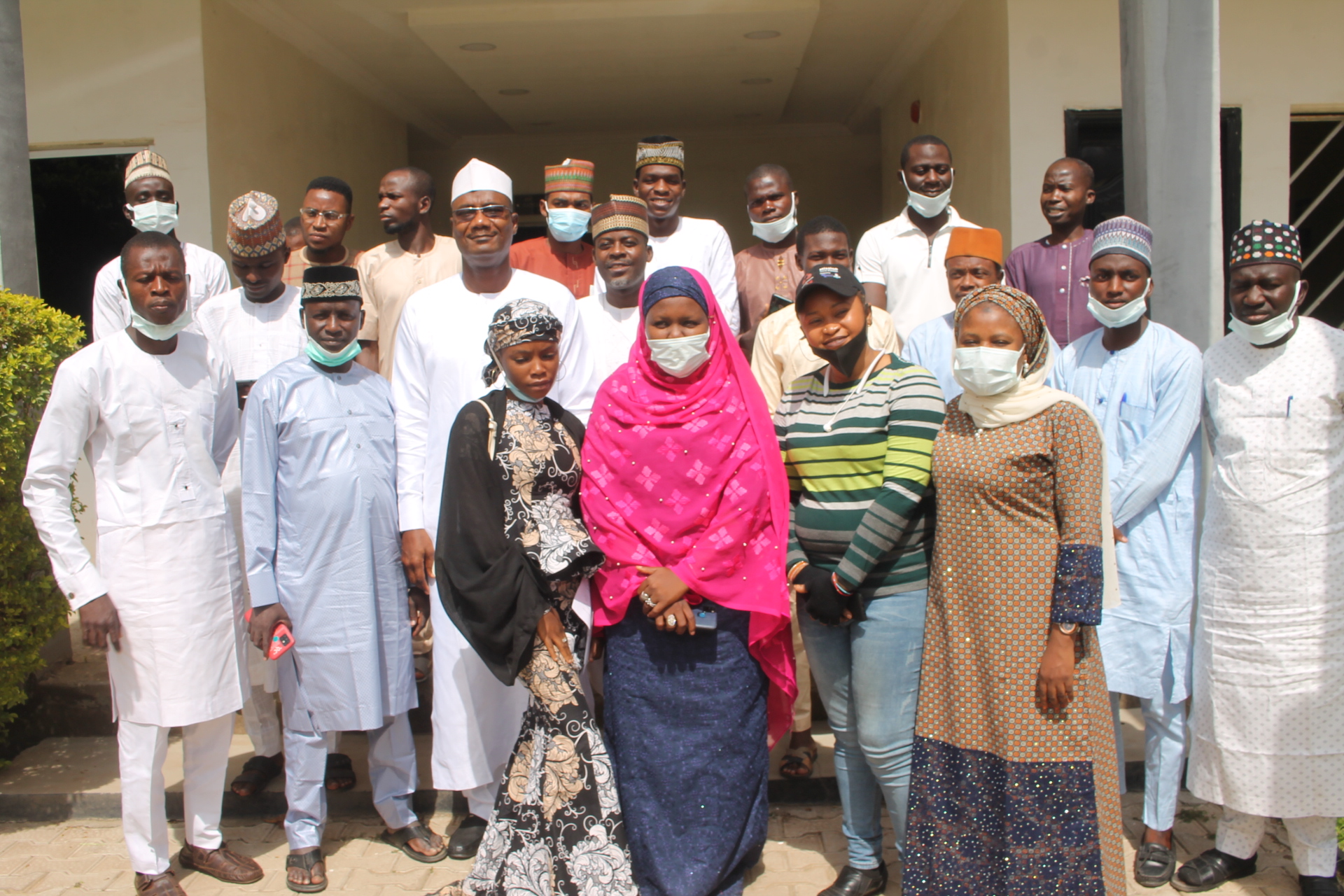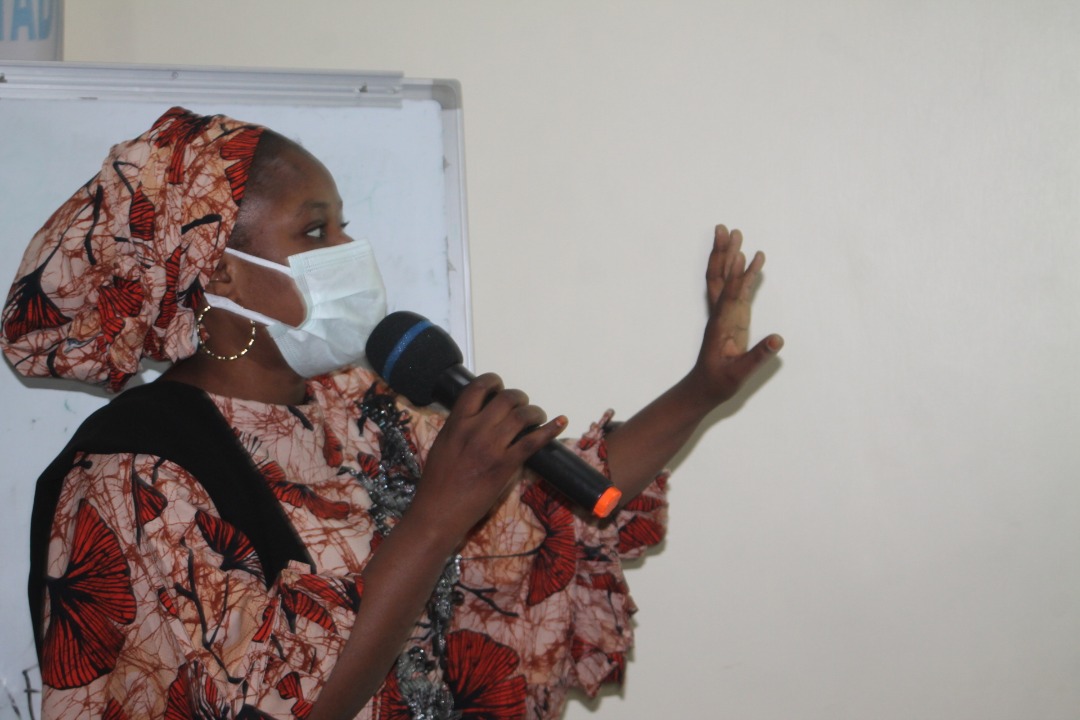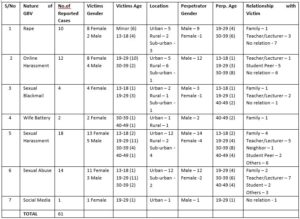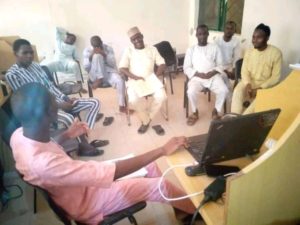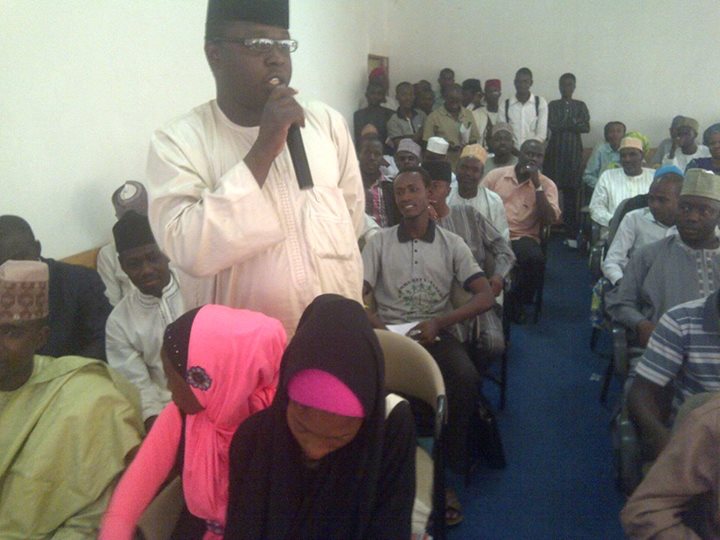Introduction:
The training is part of the continuation of providing support to micro-organizations toward the establishment of the community networks in the identified seven communities of Bauchi, Kaduna and the FCT. It was attended by the media (print and electronics), the CBOs and other professionals that made various presentations during the weeklong programme.
The project has three segments and these are defined as Work packages 1-3: Work Package one: enhancing the capacity of the meso organization (which is CITAD) to provide training, mentoring and other support for the micro-organizations. Secondly, Work Package 2: training, mentoring and support for seven micro-organizations to aspire to build and or consolidate on their community network projects. The last segment is Work Package 3: work with various stakeholders to address legal, regulatory and policy issues that inhibit the flourishing of community networks in the country.
Therefore. This training of organizations falls under the second package and it was a planned event that drew carefully selected participants from seven communities under the project (Leleyi Gwari, Pasepa, Tungan Ashere, Dakwa, Itas, Jama’are and Fanstuam). Being part of the capacity building programmes (under WP2) for micro-organizations, apart from the physical training CITAD is deploying a longer period of online interaction that will go beyond the physical training and will continue with another stage of mentorship.
Keynote address was made by the representative of Galaxy Backbone, while goodwill messages were delivered online by Miss Edith and in attendance, by another representative of Fantsuam Foundation, Kaduna.
Objectives:
To introduce community organizations (micro-organizations) to the fundamentals and technical aspects of community network
Create synergy among the micro-organizations to advocate/influence establishment of community network
Expose trainees to sustainability strategy toward establishing and managing community networks
Methodology:
The training was conducted through series of presentations, demonstrations, group works and interactions at plenary between trainees and trainers. This method allowed for flow of lessons and sharing of experiences among micro-organizations.
The school was run on two sessions per day, morning and afternoon. This is to provide enough time for assimilation of the various courses taught. At interval, two breaks were observed for brain refresher.
Opening remark:
The Executive Director In his opening remark and background of the project, Engr Y Z Ya’u, stated that over the last 2 years CITAD has been working tirelessly to catalyze the emergence of community networks in Nigeria. Considering that, there is no policy to guide the implementation of Community networks in the country, CITAD took a step to engage the regulators such as Nigerian Communications Commission (NCC), the ministry of communications and digital economy as well as other relevant agencies to ensure that appropriate policy is developed for Community Networks to run in the Country. He also stated that part of the objective of the school is to train champions with technical skills on how they can design, deploy and manage community networks. This made CITAD to deliberately have in the curriculum, sustainability strategy for sustenance of the network even at the exit of CITAD. The school will run in two phases, the first phase is an intensive physical one-week residential training which start today, followed by four-month online training which is part of the phase two activities.
Goodwill messages:
Some of the partners that work with CITAD offered Goodwill messages at commencement of the training. Some of these organizations included the Alliance for Affordable Internet (A4AI), Fantsuam foundation in Kaduna and a member of the advisory committee, Mrs Edith Udeagwu. In her remarks, the Fantsuam representative called for scaling up the School of Community Network to a tertiary Institution (level) that will serve as a sole academic environment which will provide the basic skills for establishing and managing community networks across the country.
Keynote address: By Abdul-Malik Suleiman, Group Head, Regional Offices, Galaxy Backbone.
The opening session was also supported with a keynote address by Mr. Abdulmalik Suleman of Galaxy Backbone Abuja. He spoke on “creating policy framework for the emergence of community networks”. The speaker stated that at Galaxy Backbone one of their objectives is to help in connecting the underserved communities. In this regard they were able to make some significant progress where they connected over 13 states across the nation under the first phase of the National Information Communication Infrastructure Backbone (NICTIB). He also stated that they have commenced the second phase of the project which upon completion, they hope to connect more communities across the 36 states. Mr Suleiman appreciated the effort of CITAD for setting up the School of Community Networks, which according to Galaxy Backbone is another step that will help to strengthen the impact of shared internet experience and shared Network in the Nation.
Highlights of the keynote includes:
For Galaxy Backbone, one of the objectives of why it was set up, was to help in connecting the underserved communities. The Backbone made some significant progress in this regard with the “connection” of over 13 states across the nation under the first phase of the National Information Communications Technology Infrastructure Backbone (NICTIB).
Galaxy Backbone has commenced the second phase of this project which on completion will see it connecting more communities across the 36 states of our dear nation Nigeria.
According to him, the great work the Centre for Information Technology Development (CITAD) has continued to do especially with the setting up of this National School of Community Networks, is another step in the right direction that will help strengthen the impact of shared internet experiences and shared networks in Nigeria.
First School training was presented online by Dr Yusuf Abdulkadir
Topic: What is Spectrum and how it is allocated
(Highlights)
The trainees were taken through “What is spectrum? Categories of spectrum, who allocate spectrum, how it is being allocated, how to manage the spectrum as well as the trading and leasing of the spectrum”.
Trainees understood the categories of bands: –
Low band: this radiation travels long distance with minimal signal interruption.
Medium band: provision of a mix coverage and capacity
High band
Who allocates spectrum?
International telecommunications union (ICU) is responsible for allocating spectrum.
How spectrum is allocated?
Basically, the spectrum is allocated on “economies of scale”. This means that, the international community apply some level of politicking n the allocation of spectrum.
How spectrum is allocated?
This is taken and utilized by individual nations/administrations based on peculiarities.
How do you manage spectrum? These is managed in two ways:
Methods of allocating spectrum:
Dynamic spectrum access
Static spectrum access
Emerging trends in spectrum allocation:
Reduction in requirement for infrastructure in the deployment of spectrum
Extending of spectrum to many unserved and underserved
Motivational theories by participation:
Main aim of the programme e.g, on the about 80 million Nigerians don’t have access to internet. This is a provoking issue that require necessary skills to be injected to larger citizens.
There is need for a more broader awareness creation on the need for community network
(Refer to reading materials on power point)
The Second session of Dr Yusuf (applying spectrum allocation)
This is a continuation of the first session on spectrum and the highlights includes: This part covered areas such as achievements of spectrum allocation, 2G/3G coverage, 4G coverage, value of telecom sector and managing spectrum allocation.
Applying spectrum allocation –
Most of the spectrum allocation in use today are not easily available because they are licensed
For any use to apply and use the unlicensed spectrum, this will require equipment certification and must be complied with technical requirements
There is significant interference in the use of ISM band because anyone can use it and this led to the crowding of the space by users
Spectrum allocation model:
International link
National backbone
Distribution
Access
Licensed shared access (LSA):
Additional licensing with exclusive sharing agreements
LSA is necessary when the spectrum cannot be released within a reasonable time
Licensed-exempt spectrum
Shared use among multiple technology
Idela for local access, short range devices, and opportunistic use for mobile broadband
Spectrum trading and leasing:
Operators are allowed to trade or lease their exclusively assigned spectrum usage rights to other users
Goal to increase efficiency in the use of spectrum
Conclusion: The class was concluded by opening space for interaction. The facilitator appreciated participants for opening space to engage the trainees on spectrum and how they can identify issues for advocacy to support the establishment of effective community network in their respective locations.
Question
Response
Why the issue of license is not protected?
As community representatives, what can people with less technical skills do about spectrum?
Liaison with organist ions like CITAD, making specific requests of information from NCC through associations, etc will open space for link with experts.
On the three bands, what other advantage does the high band have other others?
About ITU – are they in Nigeria? How can our communities get access to it?
How is it useful in Nigeria?
The work of ITU is well known in the telecom industry as a regulatory body. An agenda was drawn for allowing the ITU to effectively work in Nigeria, lately in 2019 and Nigeria is a signatory to it.
The ITU – what is their relationship with government especially on spectrum allocation?
It is largely seen for the purpose of economic gain. The spectrum is mostly allocated based on economies of scale and government focus more on this.
Day-two
7/12/2021
The programmes started with a recap of day-one and some of the areas revised included:
Understanding the international regulatory bodies such as the ITU
Spectrum and how it is allocated
The role of Galaxy in promoting digital inclusion in Nigeria
Spectrum allocation and its management
The second course in the school was introducing trainees to “The TVWS”. This was facilitated by Engineer Kabir Ahmed, (highlights):
TVWS – transmission overview
The TVWS support the provision or access to quality network where obstacles like the hills and valleys doesn’t impact it. But there is density and it may affect it a little (not significantly). The degradation of such obstacles doesn’t affect the accessing of good signals.
For locations where it is remote like rural (living in clusters), it may be difficult because they cannot pay for the services. With TVWS, one tower can serve a lot of clustered communities. The TVWS is meant for not more than 10km (ideal for CN).
WHY TVWS?
The TVWS is considered as an emerging technology to take care of immediate need especially for rural communities with remote or unstable connectivity and in some instances for unconnected areas. This stand to be more useful to the over 60% of the world’s population who don’t have access to modern (education, healthcare, digital communication, business and finance & employment). This alarming percentage require effort to reduce it through provision of alternative connectivity avenue.
WHY TVWS In Africa:
Some of the reasons why internet penetration in Africa is not enough: Many factors contribute to the continued poor or absence of connectivity in some areas/communities. Many reasons that lead to this problem includes – (poverty, corruption, poor awareness, etc). There is a need for additional technology in Africa to support internet access and this justifies the need for the TVWS.
Why CSOs need to advocate for access to internet
It will improve economic growth
Enhance spectrum utilization (a lot of spectrums is under-utilized)
It will help in bridging some educational gaps in rural areas
Another fundamental reason why CBOs should canvass in getting clear definition of using TVWS is
Lack of adequate wireless in the country.
Very high cost of installation
In the process of installation, there are different types of masts relevant for each installation and also specific to location. There is need to consider the following factors when installing mast: –
User need to know that, there are four operators in Nigeria (Glo, MTN, Etisalat and Nmobile)
Whether to apply the concept of c-location (work with multiple service providers)
In terms of users (the antenna has its capacity)
Why are antennas always directional? Satellite technology differs and this is always on two bands. Mindful, user should understand that, weather affects direction in the use of antenna.
A global momentum – worldwide trials and demos. This refers to the deployment of TVWS, and Nigeria has not expressed interests in the use of TVWS for now. Some countries have completed (applied the use of TVWS), some are at planning stage while others are on interest stage. The potentials are available in Nigeria but unutilized.
Completed or on-going
Planned
Expression of interests
The SWOT analysis of TVWS:
The strengths: one of the greatest advantages is the use of telemedicine as introduced by some countries such as India. This leads to –
Extensive nation-wide TV coverage
Digital migration already commenced
The weaknesses: In countries such as Nigeria, the absence of such framework hampers lots of interests from many potential users.
Lack of regulatory framework
Opportunities if the TVWS: Some of the opportunities that can be leveraged upon includes: –
Availability of un-utilized frequencies. Potential users can drive on this and bridge the existing space on TVWS
Enhance education within the rural areas
Platform for new wireless broadband entrance
Threats:
Interference from the existing broadcasting houses. However, this can be avoided when you have your frequency data. Knowledge of availability of such data will avoid duplication in terms of issuing the frequency to another service provider.
In Nigeria and at present, only university of Ilorin is about to set up the use of TVWS in their school campus.
Comments:
Question/observation
Responses
Comments
What can the coalition (CBOs) do to avoid collision with the big players in the course of advocating for establishment of community networks in the country?
Evidence-based advocacy can help in dousing possible resistance by some big-wigs in the telecom industry. Also, dialogue/interface between communities and others such as service providers, NCC etc will reduce blockages.
More players may be encouraged to come in because they have the capital, just to make profit. The application of TVWS will generate innovation, just by trying to apply the TVWS. The network gap needs to be addressed.
NCC has presently issued out a draft document to the application of the technology (TVWS).
There is need for local content research that suits our (Nigerian) society.
Supportive regulatory environment.
Stakeholder engagement (engage the community members).
Financial support from individual, government and service providers.
As an alternative source of power to support the establishment of community network and reduce cost of running engines, renewable energy is desirable in the country.
General recommendations:
Organizations should support the development of TVWS usage condition for regularization
USPF should support the use of TVWS IN THE COUNTRY (especially for rural communities). The fund needs to work for communities
Monitor the trials of existing TVWS in any part of the country (by government to entrench compliance)
Detailed study of rural issues needs to be conducted. This refers to proper mapping of communities (to provide all the necessary details/needs of communities)
CBOs to advocate to State governments on the need to allocate budget line to support deployment and use of TVWS
The telecom sector (public and private) should seek funding from sources such as the Worl Bank, etc
Train and develop human resource for TVWS deployment
Setting standards for use of TVWS by regulatory body, NCC
Monitoring the network performance. This can be conducted independently by organizations like CITAD and other NGOs for a more reliable report/outcome
Group work segment:
The trainees were grouped into three, each with a specific task for delivery. Presentations were later made at plenary. Generic question was given to all groups as outlined below:
It is expected that all groups will identify problems in their communities when deciding to apply the TVWS as a solution to a problem. The groups below are expected to areas to be studied are:
Address the problems,
Benefits of TVWS to communities,
Implications
The 1st, 2nd and 3rd groups are to work on
Education
Disaster
Health
Presentations: Group one (Education) and the Contents are;
Deployment
Strengths
Challenges and benefits
Solutions to the identified problems/challenges
Stakeholders include government agencies, community leaders, students, teachers, etc.
ISSUE
STRENGHS
CHALLENGES
BENEFITS
SOLUTIONS
Education
Lack of policy
Economic growth
Improvement of education in the community
Need for spectrum database
Proper management
Group two
(Disaster)
This group used a community called KIYAWA as a case study to identify the relevance of applying TVWS especially in a disaster-prone situation in the community. Some of the stakeholders identified by the group includes the SEIMU, LG Chair, traditional leaders, religious groups, NCC, NITDA, NGOs/CSOs, etc.
Deployment of the TVWS: this can be through
Advocacy
Fund raising
Community mobilization
International donors
Political office holders
Identified beneficiaries:
Farmers
Towns neighboring Kiyawa community
Comments/questions:
In a more-simpler tone, the deployment of TVWS can reduce the sufferings of communities due to disaster through the use of the TVWS. This is possible because it can aid the use of antenna to provide the necessary network in a community that will further, be used to communicate or seek for help/assistance in a state of need.
Group three Health
ISSUE
STRENGHS
CHALLENGES
BENEFITS
SOLUTIONS
Lack of advocacy by the CSOs to attract support
Corruption
Lack of connectivity
Uncompleted projects by governments
Research
Reduction in digital barrier
Promotes distance learning opportunities
Proposal on health issues for support
Building the capacity of CSOs/CBOs
Addressing the issue of digital literacy
Social media campaign
Abolishing of favoritism in health sector
Conclusion:
A video was played that depicts the relevance of TVWS especially in Africa where the digital gap is wide and the need to bridge the gap came out from the clip, vividly. The video highlighted how the application of TVWs became useful in a disaster community, educationally disadvantaged communities and similar communities that require quality education. The outcomes of the video are expected to serve as advocacy issues for the Micro-organizations toward a successful community network.
Afternoon session
“VSAT Installation”
Engineer Bello Abdulhamid
VSAT Installation and its maintenance:
Highlights of the topics included: How VSAT looks like, categories of VSAT hardware, how it is installed, managed and the requirements for installation.
The VSAT is technically referred to a very small aperture terminal (VSAT) and is purposely designed to provide internet services to all users. The users can both be in rural or urban depending the location of the user.
How small is the VSAT?
Facilitator used images to demonstrate what a VSAT looks like and how it is installed. The weight of the outdoor hardware may be anything from 50kg to 500kg including the mouthing hardware. It is characterized by a very small “aperture” and the cost of equipping the aperture is higher than the cost of its maintenance. This need to be understood by potential users.
There are two groups of VSAT hardware:
Outdoor unit assembly
Indoor unit assembly
Few things to consider before installation of VSAT and these are:
Equipment needed for the installation (specific)
Knowledge of installation
Equipment required for the installation
Outdoor unit (dish, the radio, receiver, the modem, need for a clear sky to avoid obstruction,)
Indoor unit ()
While there is need for any installer to have a compass that will aid him/her to know the direction of signal.
Comments/question:
VSAT Installation is covered/regulated by private sector
VSAT is powered by sun with a guarantee of up to 15 years
One of the advantages of VSAT is its installation in a place where there is no internet. The VSAT will provide better access to the use of internet provision. Here, one can use his google internet to identify the best place suitable for the installation.
Why do user encounter disconnection when there is cloud?? This was responded thus: that analogue signals have tolerance than the digital. This means that, the analogue digital provision tolerates cloud and thunder especially during rainy season. There is less obstruction unlike the digital signal which easily responds to cloud and other environmental factors that distracts network. Each particular signal has a specific location or direction.
(See full reading materials provided for full lectures)
Day-three
ICT Policy landscape in Nigeria and community networks (opportunities and challenges)
Engr Usman Maaruf Yakubu
Background of the presentation: this presentation comprises of about 20 different areas under the telecommunications. They are (National Digital Economy Policy & Strategy, partnership, infracos, regulatory landscape, NCC Act, ICT structure, postal services, ICT structure in Nigeria broadcasting, ICT structure in Nigeria NITDA, community network – a way to bridge the digital gap, the SDGs, benefits of CN, Challenges of CN, characteristics of CN and Why Community Networks in Nigeria, Challenges in the Regulatory Terrain and How ready is the Terrain, start-up barriers, Registration, Licensing, Permitting, and Compliance, Taxes, Regulatory/Licensing, and Import Fees, financing, Spectrum Difficulties, Spectrum Scarcity and Inefficient Use of Spectrum, Expense of Spectrum Access, What laws do you need to comply with,
Highlights:
Communities need structure and most be organized before they get a recognized and acceptable community network. There must be adequate information about any community before establishing a community network center. This information must be holistic that can depict what a community is generally (socially, economically, politically).
About six bodies are involved in the development and implementation of ICT policy in Nigeria. They are (NCC, NITDA, NBC, NIPOST, NiComSat and the federal ministry of communication and digital economy). However, there are distinct differences between one and another. For instance, NIPOST regulate activities such as postings of letters and other local dispatches from one place to another within Nigeria. NBC regulate the activities of media especially the radio and television. While, NITDA and the federal ministry of communications and digital economy regulates activities that revolve around service provision like the network coverage provided by companies such as MTN, Glo, Etisalat, etc.
Policymakers and regulators can help reach the next billions unconnected through innovative changes and through community network initiatives, helping to close the digital divide. To unleash the full potential community networks, policymakers should consider innovative ways to license Community Networks and provide meaningful access. This includes:
Streamline or Eliminate Onerous Regulatory Requirements, especially those that are not applicable to small, community-based networks.
Provide Tax, Customs, Regulatory, and Licensing Fee Exemptions. These fees and duties are difficult for community network operators to afford and can delay or prevent their development.
Enhance Transparency. Regulators should provide clear, public guidance on the specific policies and regulatory requirements (and exemptions) for community networks.
NB:
ICTs contributed about 12.45% in the 2020 budget of the FGN.
National digital economy policy and strategy: The federal government has put in place the following polices to regulate various activities under the ICTs.
Solid infrastructure (provides protection against network/service interference)
Service infrastructure
Indigenous content development and adoption
Digital society and emerging technologies
Soft infrastructure (this covers issues such as providing protection against abuse of person’s rights), ethics
Generally, for any community network to effectively be operated and managed, it must be fully owned by the community. This also means that they have to be into business because the NCC considered registration of communities with such intent only when they are into making sales/profit.
Regulatory landscape: It needs to be noted that, there were previously total fixed telephone lines and there were less than 400, 000 lines in years back. This is more evident prior to 1999 and regular internet users were less than 200, 000 at that time. While, in year 2000, the FGN adopted the national IT policy called NIT policy. To open and operate a business café, NCC provides license, etc. This provided opportunities for individuals to come into the communications industry more than before.
Practical session on searching for NCC Act (online).: nccarena
Lesson conclusion:
The session was closed with a call to trainees to understand that, there is a law which prescribes cyber criminality. The journey of Nigeria’s movement to the digital age is quite not steady due to weak political will and this requires deliberate and collective effort to move the process forward. There is need also, for mix of technology to for fiber optics to connect communities that are digitally disadvantaged.
Technology options
By Engr Rabiu Haruna
Trainees were taken through the various options available and other issues around community networks. As a base for understanding the subject, trainees were (as an illustration) exposed to the shift made from the analogue system to a more digital age, eg. the use of 090 in the telephony industry which marks a new shift in technology. Also, the frequency and techniques in usage differs and the limitation in capacity as well.
The technology shift tries to achieve much especially on the movement in the generations from 1st to today’s 5G. lots of changes from the previous mechanical and electrical gadgets are also clear examples of shift from the analogue age to present digital generation. Mobile network serves as a hub for linking the user and the service provider. However, there are at times that no service provider can provide up to 100% network without interference. Some of the constraints of which are purely natural. Some issues can however, be resolved e.g, study and adjustment of the transmission power, etc.
Questions/observations
Responses
Comments
Between the space and water, which one electric current flow/move faster?
For any internet service provision, there must be service provider’s issuance
Any mechanism to serve as an alternative to communities that are not connected especially where even the fiber is difficult to be shared?
Spectrum management is the sole responsibility of the government. the operator must certify all the needed requirements.
Micro-organizations should be a bit more critical/proactive on advocacy around community network (the sustainability aspect)
For sustainability purpose, there is need to agree on a reasonable (affordable) fee that community members will be charged for any service to be rendered by a CN. This charge/proceed will be used to sustain the CN.
The towers around our neighborhood are meant to provide the necessary networks needed to our phones/cell phones
The service provider has a duty to make profit and make his business sustainable
Various types of electromagnetics:
Electrical and electromagnetic telecommunication technologies include the following:
The telegraph
Telephone
Teleprinter
Microwave transmission, fiber optics, communications satellite and the internet amongst others
Types of electromagnetic radiation:
Radio
Microwaves
Infrared
Visible light, etc
Group work and outcomes:
The facilitator grouped trainees into three and assigned different tasks which was later presented at the plenary. Questions, observations and comments were made thereafter;
Group two task:
List the different types of transmission networks available>
Group three task:
List the different types of radio access>
GRAN
GERA
GRAN
VRAN
Some challenges of the telecommunication industry:
Poor or weak private investor’s participation in the country to support effective communication especially in the less advantaged communities
Weak willingness by government to support and protect public telecoms interests
Artificial low price in the telecoms sector
However, government is advised to have a regulated minimum price level to balance the sides of both service provider and customer.
Next steps: As part of the MoU signed between CITAD and the micro-organizations, the following were the next steps
CITAD will continue to provide mentoring to the organizations
CITAD to conclude the remaining courses not covered during the physical session at second phase
Micro-organizations will lead in community mobilization to further secure and consolidate community buy-in and support for the local community network initiative
Be responsible for preparing and submitting regular report of activities to CITAD
CITAD will provide training schedule for the second phase
End of training:
The training came to an end on day-four with the administration of post training evaluation forms to trainees. This was aimed at measuring their level of understanding/comprehension of the programme and what they actually learned as take-away. Similarly, a commitment form was signed by the trainees with a view to encourage them to be more proactive on promoting the initiative. The commitment charter is to trigger responsiveness from the trainees on their expected roles toward supporting the establishment of the Community Network. Study materials were provided to the trainees for further readings.
Mr Eseyin of Fantsuam foundation Kaduna offered vote of thanks on behalf of other trainees and the programme closed at about 5:00pm. The school sessions were covered on video, pictures and audio.
Annexes:
S/N
Description
Facilitator
MoV
1
Policy regulations in Nigeria
Engr Usman Ma’aruf Yakubu, NITDA, Abuja
2
Technology Options
Engr Rabiu Haruna
3
TVWS
Engr Kabir Ahmed
4
Applying Spectrum
Dr Yusuf Abdulkadir, NCC, Abuja
5
Copy of pre-Training evaluation form
CITAD Team
6
Keynote Address
Engr Abdilmalik Suleman – Galaxy Backbone, Abuja
7
Reading list
CITAD Team
8
Agenda for the training
CITAD Team
9
VSAT installation and Maintenance
Engr Bello Abdullhamid
10
VSAT installation
Engr Bello Abdullhamid
11
Press conference
Engr Y Z Ya’u, CITAD
12
Media clip
Daylight publishers
13
Media clip (radio)
Freedom radio, Kaduna
14
Media clip
NNN, Kaduna
15
CITAD Restates Need to Develop Guidelines, Regulations for Operation of Community Networks in Nigeria
CITAD Restates Need to Develop Guidelines, Regulations for Operation of Community Networks in Nigeria
16
PRESS RELEASE: CITAD Urges Urgent Intervention in Community Network to Bridge Digital Divide
https://techmirrormag.com.ng/index.php/news/digital-divide-citad-network
17
CITAD Advocate for National Policy on Community Network to bridge digital gap
The Campus Watch
CITAD Advocates For National Policy On Community Networks To Address Digital Divide
18
114 communities don’t have GSM signals in Nigeria —CITAD
19
114 Communities Don’t Have GSM Signals on Nigeria —CITAD
Nigerian Tribune Newspapers
114 communities don’t have GSM signals in Nigeria —CITAD
20
CITAD Launches the Nigerian School of Community Network
Nigerian Tracker
CITAD Launches the Nigerian School of Community Network
Pre-training evaluation form,
Post training evaluation form
Abbreviations:
NSCN Nigerian School of Community Network
TVWS Television White Space
CITAD Centre for Information Technology and Development
WP2 Work Package two
FCT Federal Capital Territory
CBO Community Based Organization
NCC Nigerian Communications Commission
A4AI Alliance for Affordable Internet
LSA Licensed Share Access
ITU International Telecommunications Union
SWOT Strengths, Weaknesses, Opportunities and Threats
NITDA National Information Technology Development Agency
IT Information Technology
ICTs Information and Communication Technologies
NIPOST Nigerian Postal Services
NICTIB National Information Communication Infrastructure Backbone
